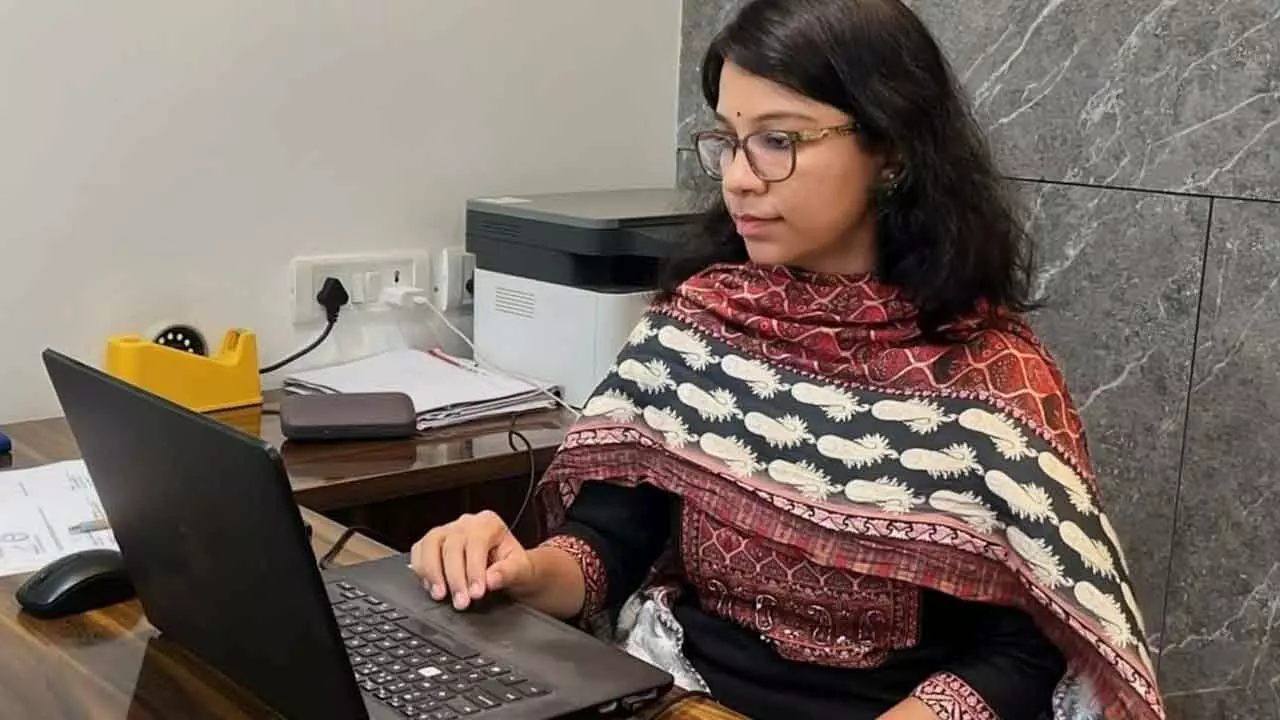Overqualified, not over: How one woman turned frustration into a movement
A Chennai-based women entrepreneur’s mission to reconnect skilled women on career breaks with meaningful work is redefining what India’s startup ecosystem stands for
Overqualified, not over: How one woman turned frustration into a movement

It was just another day for me at IIM-Jammu, classes from 9am to 5pm, and yet another committee meeting at night. But between these two obligations, there was something I was particularly excited about - an interview with Mrs Sankari Sudhar, the founder of Overqualified Housewives.
A conversation about startups was bound to be exciting, technical, and ambitious, but what I wasn’t prepared for was the emotional reaction it brought out in me, a reaction to the silent frustration of countless women in India.
It’s a statistic that stops you in your tracks: only 5.4 per cent of urban graduate women in India are working. But for Sankari Sudhar, a former IT professional based in Chennai, an alumni of the esteemed Madras Institute of Technology, this wasn’t just a number. This was the reality she found herself facing after she became a mother during the Covid-19 pandemic.
“I thought I had it all figured out,” she shared. “But trying to manage a demanding job with 12-hour workdays and a newborn was overwhelming. Even with remote work, the balance was a myth.” Like many, she made the difficult decision to take a break, hoping to return when things settled.
But the ‘return’ part was surprisingly hard. Her desire to balance flexibility with a fulfilling career became a challenge she didn’t expect to have, with little to no remote opportunities that offered work that matched her capabilities or compensated fairly. The freelance world proved to be a strange battlefield of high competition and low confidence.
Curious, she started calling old classmates and school friends. “To my surprise,” she recalls, a note of disbelief still in her voice, “so many of them were also ‘sitting at home.’ We were a pipeline of talented, educated women, entering the workforce and then… disappearing.”
Her personal struggle was not an isolated incident. It was a pattern. The clincher was a 2022 Media report that laid the problem bare: India has the highest number of overqualified housewives in the world. The 5.4 per cent statistic was her wake-up call.
What started as a basic website to test the concept has evolved into a mission-driven platform. Overqualified Housewives connects skilled women on career breaks with startups and SMEs that value talent and output over ‘seat time.’ But Sankari quickly learned that building this bridge came with its own set of battles.
Early on, they were mistaken for an NGO, with businesses expecting free services. More disturbingly, they were flooded with exploitative opportunities. Far too many businesses were demanding extensive work engagement, while paying poorly for the same. She recounts one that was particularly galling: a business wanted a content writer to produce two blogs every single day for a month-60 pieces-for a paltry sum of Rs5,000.
“It was a gut feeling,” Sankari says firmly. “This was pure exploitation. We had to develop the capacity to say ‘no,’ even when we had very few clients. We had to protect our women and ensure they were valued.”
The other major hurdle was unconscious bias. “Businesses were skeptical. They thought these women wouldn’t deliver, that they would ‘go after their babies,’” she explains. Her team had to become advocates, showcasing success stories to prove that a career break does not mean a drop in capability.
In a world that is focused on fierce funding rounds, Sankari’s venture is proudly bootstrapped. For her, the mission is too important to dilute. The early days were a classic founder’s tale: she was the CEO, the janitor, and the night-shift email responder, all while putting her baby to sleep.
Her first hiring attempts—relying on enthusiastic relatives—fell through. It was a hard, but vital lesson. “I understood the formula then,” she laughs. “You don’t convince relatives. You hire from your own platform. We have to be the product of our product.”
Today her platform has evolved, using an AI-based system called RMPT instead of the manual excel sheets they used initially and a subscription-based model, to scale the impact and help businesses “hire more, and hire better.”
As our conversation wrapped up, her advice for aspiring entrepreneurs was refreshingly grounded. “It’s not about making big money first,” she insists. “If you give your heart and soul to add real value to a lot of people, the money will automatically follow. Focus on the value, and focus on your integrity.”
Sankari Sudhar’s story is more than a startup success-in-the-making. It’s a reminder that some of the most powerful businesses are born not in boardrooms, but from personal pain, a dose of shocking data, and the unwavering belief that you can be the one to light the way for others.
(The author is a student at IIM Jammu, from the IPM03 batch)

